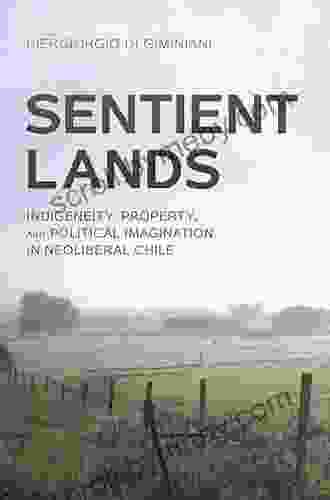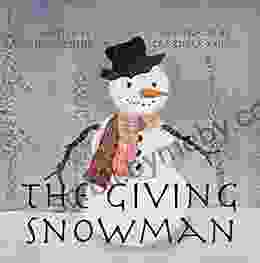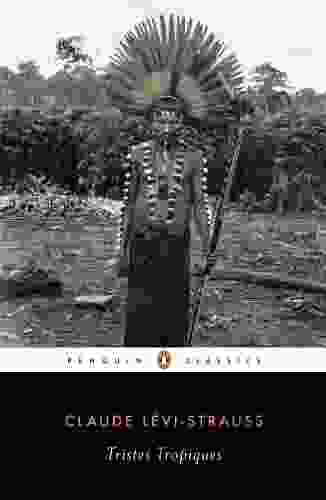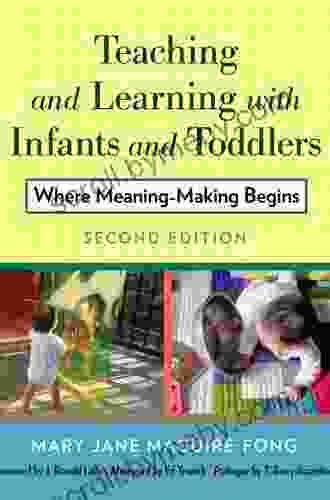Indigeneity, Property, and the Political Imagination in Neoliberal Chile

5 out of 5
| Language | : | English |
| File size | : | 3299 KB |
| Text-to-Speech | : | Enabled |
| Screen Reader | : | Supported |
| Enhanced typesetting | : | Enabled |
| Print length | : | 261 pages |
This book explores the relationship between indigeneity, property, and the political imagination in neoliberal Chile. It examines how the neoliberal state has sought to incorporate indigenous peoples into the market economy and how indigenous peoples have resisted and negotiated these processes. The book draws on a range of case studies, including land claims, water rights, and cultural heritage, to show how indigenous peoples have challenged the dominant neoliberal narrative and asserted their own visions of property and politics.
Table of Contents
- Chapter 1: Indigeneity and Neoliberalism in Chile
- Chapter 2: Land Claims and the Politics of Recognition
- Chapter 3: Water Rights and the Struggle for Autonomy
- Chapter 4: Cultural Heritage and the Contestation of Identity
In recent decades, neoliberalism has become the dominant economic and political ideology around the world. Neoliberalism is based on the belief that the free market is the most efficient way to allocate resources and that the state should play a minimal role in the economy. Neoliberal policies have been implemented in a wide range of countries, including Chile.
Chile has been a pioneer in the implementation of neoliberal policies. In the 1970s, the Chilean dictator Augusto Pinochet implemented a series of neoliberal reforms that privatized state-owned industries, deregulated the economy, and reduced social spending. These reforms led to a period of economic growth in Chile, but they also exacerbated inequality and poverty.
The neoliberal state in Chile has sought to incorporate indigenous peoples into the market economy. This has been done through a variety of means, including the privatization of indigenous lands, the commodification of indigenous cultural heritage, and the promotion of indigenous entrepreneurship. Indigenous peoples have resisted these processes and have asserted their own visions of property and politics.
Chapter 1: Indigeneity and Neoliberalism in Chile
This chapter provides a historical overview of the relationship between indigeneity and neoliberalism in Chile. It examines the impact of neoliberal policies on indigenous peoples and the ways in which indigenous peoples have responded to these policies.
Chapter 2: Land Claims and the Politics of Recognition
This chapter examines the land claims movement in Chile. Indigenous peoples have filed a number of land claims against the Chilean state, challenging the privatization of indigenous lands and the commodification of nature. The chapter explores the legal and political strategies used by indigenous peoples to pursue their land claims and the ways in which the state has responded to these claims.
Chapter 3: Water Rights and the Struggle for Autonomy
This chapter examines the struggle for water rights in Chile. Indigenous peoples have traditional water rights that are based on customary law and practice. The Chilean state has sought to privatize water rights and commodify water resources. This has led to conflicts between indigenous peoples and the state over water rights.
Chapter 4: Cultural Heritage and the Contestation of Identity
This chapter examines the contestation of cultural heritage in Chile. Indigenous peoples have a rich cultural heritage that is based on their traditional knowledge and practices. The Chilean state has sought to commodify indigenous cultural heritage and promote it as a tourist attraction. This has led to conflicts between indigenous peoples and the state over the control and use of cultural heritage.
This book explores the complex relationship between indigeneity, property, and the political imagination in neoliberal Chile. It shows how indigenous peoples have resisted and negotiated the neoliberal state's attempts to incorporate them into the market economy. The book concludes that indigenous peoples have their own visions of property and politics that challenge the dominant neoliberal narrative.
5 out of 5
| Language | : | English |
| File size | : | 3299 KB |
| Text-to-Speech | : | Enabled |
| Screen Reader | : | Supported |
| Enhanced typesetting | : | Enabled |
| Print length | : | 261 pages |
Do you want to contribute by writing guest posts on this blog?
Please contact us and send us a resume of previous articles that you have written.
 Book
Book Novel
Novel Page
Page Chapter
Chapter Text
Text Story
Story Genre
Genre Reader
Reader Library
Library Paperback
Paperback E-book
E-book Magazine
Magazine Newspaper
Newspaper Paragraph
Paragraph Sentence
Sentence Bookmark
Bookmark Shelf
Shelf Glossary
Glossary Bibliography
Bibliography Foreword
Foreword Preface
Preface Synopsis
Synopsis Annotation
Annotation Footnote
Footnote Manuscript
Manuscript Scroll
Scroll Codex
Codex Tome
Tome Bestseller
Bestseller Classics
Classics Library card
Library card Narrative
Narrative Biography
Biography Autobiography
Autobiography Memoir
Memoir Reference
Reference Encyclopedia
Encyclopedia Jim Al Khalili
Jim Al Khalili Dale Grdnic
Dale Grdnic Clive Hallett
Clive Hallett Peter Hewitt
Peter Hewitt Code Quickly
Code Quickly Cushy Monkey
Cushy Monkey Colin Wiel
Colin Wiel Iris Bohnet
Iris Bohnet Timothy Gene Sojka
Timothy Gene Sojka Dahlma Llanos Figueroa
Dahlma Llanos Figueroa Devon Price
Devon Price Cute Amigurumi
Cute Amigurumi Julie Sondra Decker
Julie Sondra Decker Vitaly Pedchenko
Vitaly Pedchenko Cookie Johnson
Cookie Johnson Craig Lehoullier
Craig Lehoullier Corey J Ball
Corey J Ball Marko Sarstedt
Marko Sarstedt Mary Jane Maguire Fong
Mary Jane Maguire Fong Crystal Daniels
Crystal Daniels
Light bulbAdvertise smarter! Our strategic ad space ensures maximum exposure. Reserve your spot today!
 George MartinFollow ·19.8k
George MartinFollow ·19.8k H.G. WellsFollow ·18.8k
H.G. WellsFollow ·18.8k Forrest BlairFollow ·13.2k
Forrest BlairFollow ·13.2k Michael ChabonFollow ·12.2k
Michael ChabonFollow ·12.2k Ike BellFollow ·14.5k
Ike BellFollow ·14.5k Orson Scott CardFollow ·12.7k
Orson Scott CardFollow ·12.7k Ernesto SabatoFollow ·6.9k
Ernesto SabatoFollow ·6.9k Pete BlairFollow ·6.7k
Pete BlairFollow ·6.7k

 Cruz Simmons
Cruz SimmonsUnveiling the Secrets: An Insider Guide to School Bonds...
Unlock the Power of School...
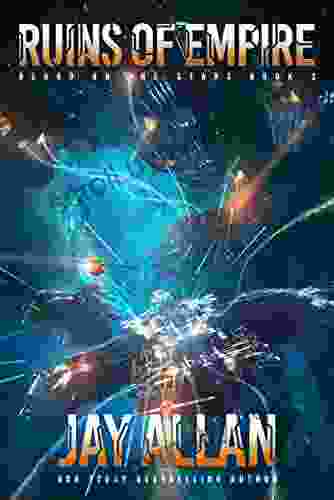
 Gil Turner
Gil TurnerRuins of Empire: Blood on the Stars - The Epic Space...
Ruins of Empire: Blood on the Stars is the...

 Allen Ginsberg
Allen GinsbergPrepare for the Ultimate Space Opera: Delve into The Last...
Embark on an...

 Anton Foster
Anton FosterUnleash Your Inner Artist: The Ultimate Guide to Oil...
Chapter 1: The...
5 out of 5
| Language | : | English |
| File size | : | 3299 KB |
| Text-to-Speech | : | Enabled |
| Screen Reader | : | Supported |
| Enhanced typesetting | : | Enabled |
| Print length | : | 261 pages |


